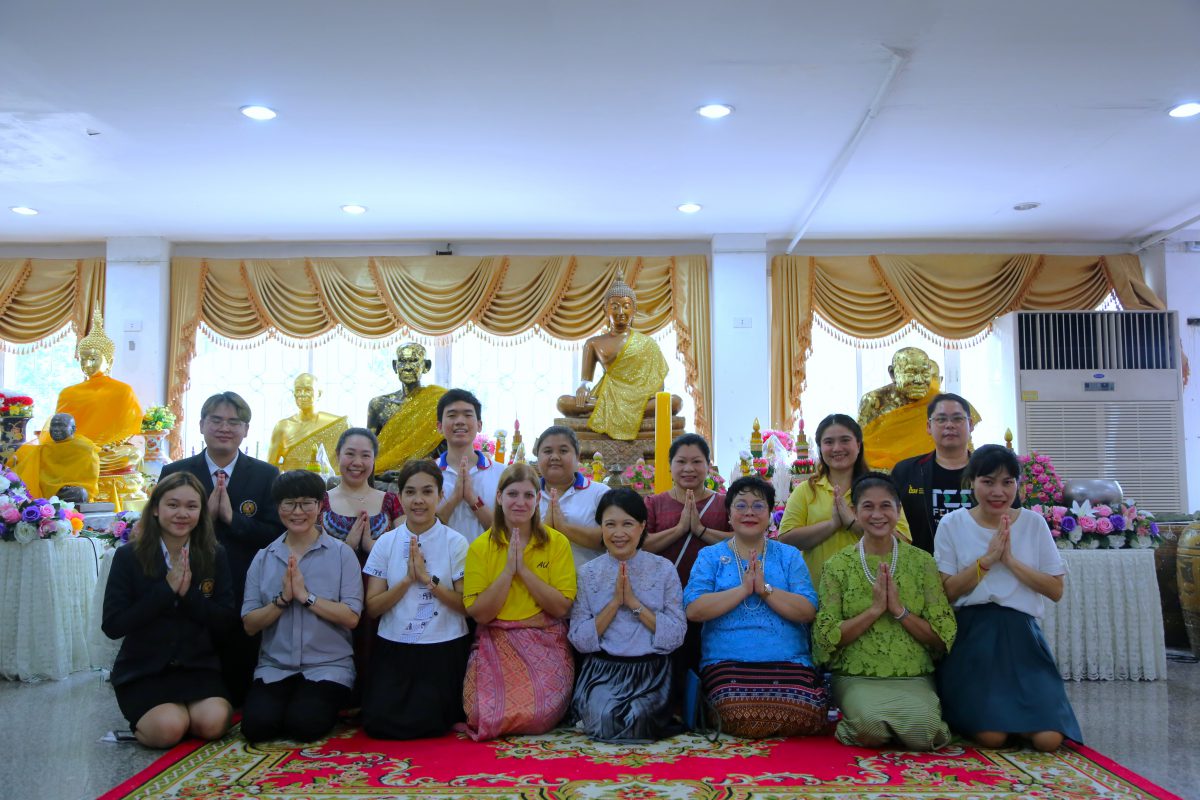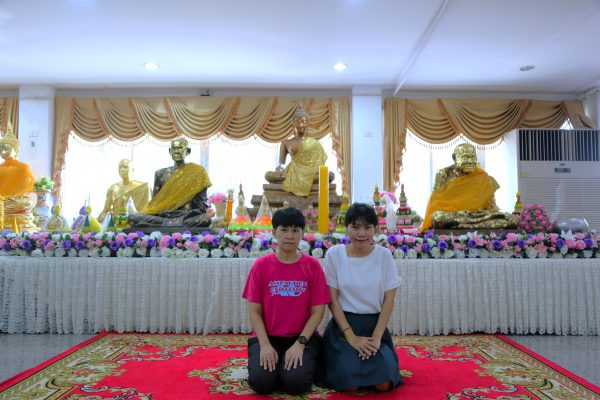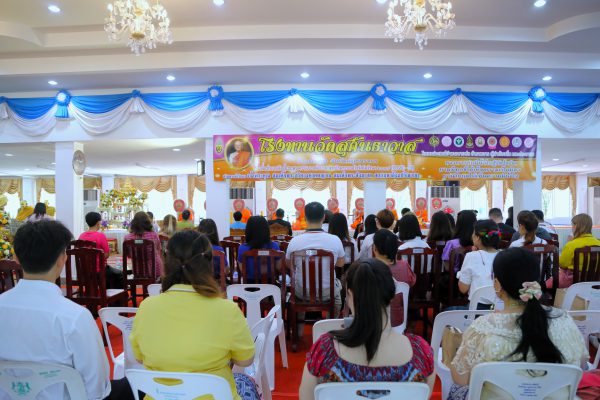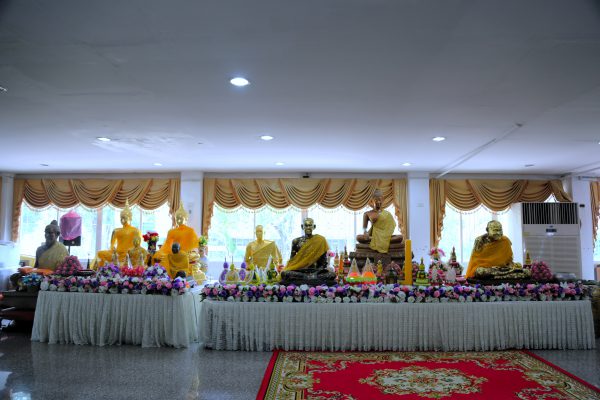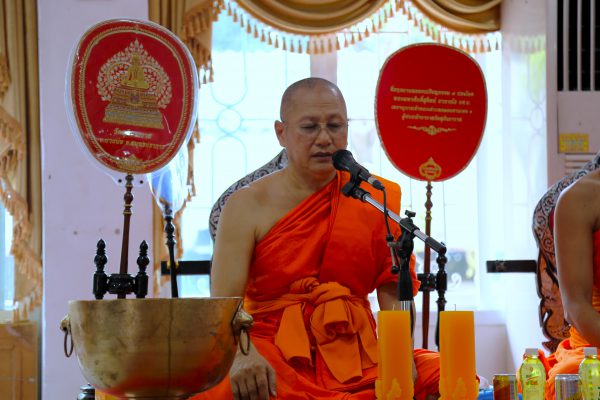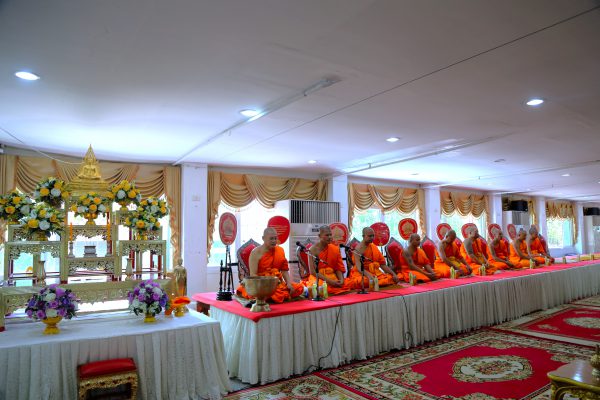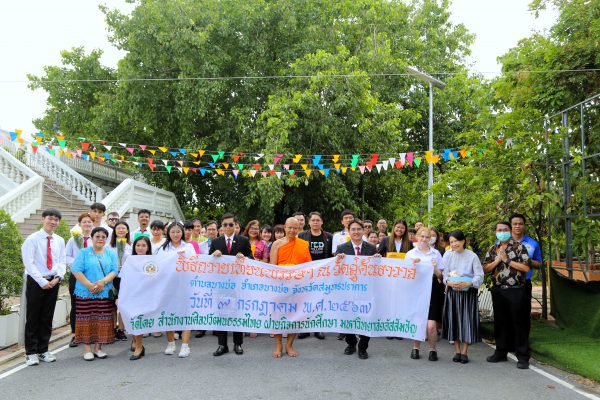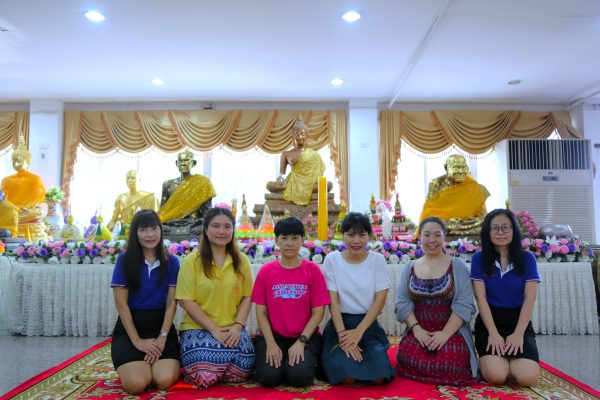July 9, 2024
On a bright Tuesday morning, the tranquil grounds of Sukhunthawas Temple came alive with the presence of Assumption University of Thailand (AU) community members. They gathered for the Annual Buddhist Lent Candle Offerings Ceremony and Alms Giving, a tradition steeped in Thai culture and spiritual significance.
Organized by the Office of Thai Art and Culture, Student Affairs, the event aimed to foster a deeper connection to Thai cultural practices among students, faculty, and staff. The journey began at the front of The Cathedral of Learning Building on AU’s Suvarnabhumi campus, where participants embarked on a short trip to the temple.
The atmosphere of Sukhunthawas Temple provided a perfect backdrop for the ceremony. By 10:00 a.m., the courtyard was filled with the gentle hum of prayers and the rustle of ceremonial robes. The Buddhist Lent Candle Procession, the centerpiece of the event, saw participants offering elaborately decorated candles to monks, symbolizing light and wisdom to guide through the rainy season retreat.
Following the candle offerings, the alms giving ceremony began. Attendees presented monks with food and essential items, a practice that reinforces the principles of generosity and mindfulness. The monks, in turn, bestowed blessings upon the givers, creating a reciprocal exchange of goodwill and spiritual merit.
For many participants, this was more than just a cultural exercise; it was a moment of personal reflection and community bonding.
The event concluded with a communal lunch, where participants gathered under shaded pavilions to share a meal and reflect on the morning’s activities. The air was filled with conversations about the significance of the rituals and the sense of peace they brought.
The success of the Buddhist Lent Candle Offerings Ceremony and Alms Giving is a reflection of AU’s dedication to enriching the lives of its community members through cultural and spiritual engagement. As the participants departed from Sukhunthawas Temple, they carried with them a renewed sense of purpose and a deeper appreciation for the traditions that bind them together.

